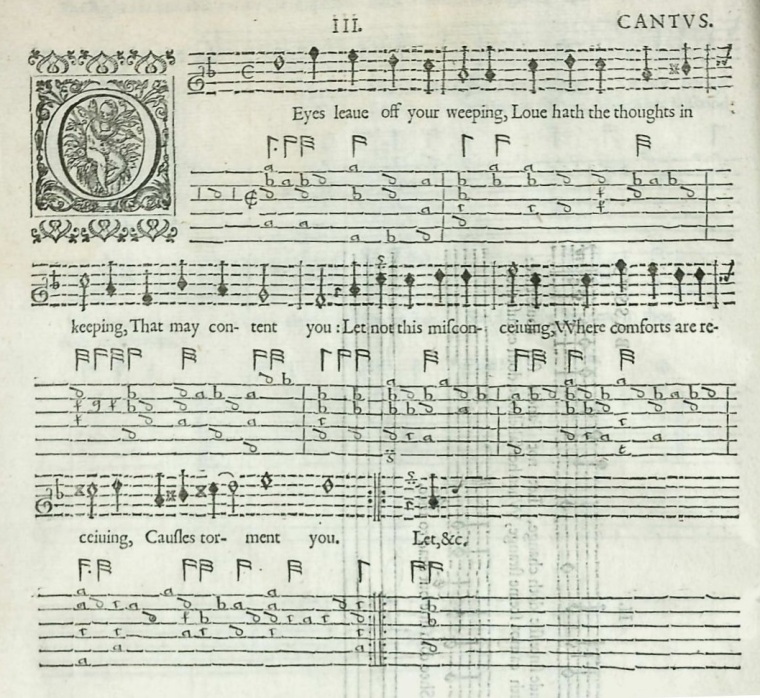Daniel Bacheler (1572 - 1618 o 1619): Change thy mind since she doth change, ayre su testo di Robert Devereux, II conte di Essex (1567 - 1601). Nigel Rogers, tenore; Anthony Bailes, liuto.
To plead my faith, where faith hath no reward;
to move remorse, where favour is not borne;
to heap complaints, where she doth not regard,
were fruitless, bootless, vain and yield but scorn.
I loved her whom all the world admir’d.
I was refus’d of her that can love none;
and my vain hope, which far too high aspir’d,
is dead and buried and for ever gone.
Forget my name, since you have scorn’d my love,
and womanlike do not too late lament;
since for your sake I do all mischief prove,
I none accuse nor nothing do repent.
I was as fond as ever she was fair,
yet lov’d I not more than I now despair.
Nella raccolta A Musicall Banquet, pubblicata a Londra nel 1610 a cura di Robert Dowland, il secondo brano composto su testo di Robert Devereux è opera di Daniel Bacheler, liutista e compositore che fu dapprima al servizio di sir Francis Walsingham, potente ministro di Elisabetta I; in seguito attivo presso lo stesso conte di Essex. venne infine nominato groom of the privy chamber della regina consorte Anna di Danimarca.


